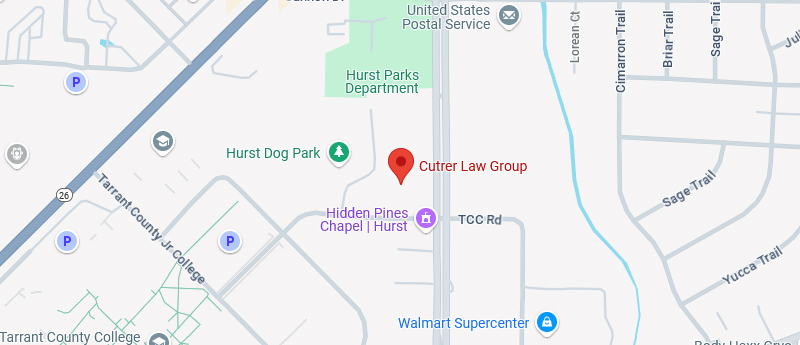Are Same-Sex Adoptions Legally Recognized?
According to Texas law, same-sex couples are subject to the same requirements and laws that apply to all adoptions. Both single members of the LGBTQ community and same-sex couples have the option to legally adopt so long as they meet the parameters set forth by law.
What are the Legal Requirements for Adoption?
The Department of Family and Protective Services has outlined basic requirements and responsibilities for all prospective parents.
Basic requirements for prospective single or married adoptive parents include:
- Must be a minimum of 21 years of age, financially stable, and responsible adults
- Must complete an application
- Must provide information regarding background and lifestyle choices
- Must provide relative and non-relative references
- Must share proof of marriage or divorce
- Must agree to a home study that includes all members of the household
- Must submit to a criminal history background check and an abuse or neglect check on all adults within the household
- Must attend free classes to learn about issues regarding abused or neglected children
Additional responsibilities for adoptive parents include:
- Provide a permanent home and lifelong commitment to the child into adulthood.
- Provide for the short-term and long-term needs of the child.
- Provide for the child’s emotional, mental, physical, social, educational, and cultural needs in accordance with the child’s developmental age and growth.
- Option to become certified as a foster family to accept children who are not legally able to be adopted but whose permanency plan is adoption.
What are the Types of LGBTQ Adoption?
Parentage may be established biologically without legal intervention. For same-sex couples, it is established through various forms of adoption, such as:
- Joint adoption: This occurs when both parents adopt the child at the same time. Pursuant to Texas’ marriage equality laws, same-sex couples are entitled to equal treatment in adoption petitions, assuming the basic requirements are met.
- Second-parent adoption: Also known as co-parent adoption, this method involves the second parent adopting the biological children of their partner without being married.
- Step-parent adoption: Stepparent adoption is the most common form of adoption and involves the adoption of a child by the spouse of the biological parent. For this form of adoption, the biological parent must consent to the adoption, and any other legal parent must surrender parental rights to the child in writing.
- Single-parent adoption: A single parent may adopt a child as long as they meet the state’s requirements, regardless of the parent’s orientation.
- International and domestic adoption: While domestic LGBTQ adoption is legal in all 50 states, international LGBTQ adoption depends on the child’s country. Some countries have clear allowances or refusals for same-sex adoptions, while others will allow one parent to complete the adoption. Then, the partner is able to complete a domestic second-parent adoption.
- Private and foster care adoption: Same-sex parents may adopt through private adoptions, like the child place agencies throughout the state. They may also adopt children they are fostering as long as the termination of biological parental rights is deemed to be in the best interest of the child.
Why is Legal Adoption Important?
Legal adoption enables both parents to have the same rights and responsibilities to the child. In the event of divorce, both parties would have the legal option for visitation or custodial rights to the child and will protect inheritance claims.
What is the Adoption Process Like for Same-Sex Parents?
The adoption process will vary depending on the type of adoption pursued. The following outlines the basic steps involved.
The Home Study
The home study is a required part of the adoption process and involves an extensive evaluation of a home environment and of a parent’s readiness to adopt. It is performed to ensure a stable and loving environment for a child. Part of this process will include:
- Documentation: Detailed personal information, such as banking statements, background checks, and medical records
- Home visits: A social worker will visit a home to determine the safety and appropriateness for children
- Interviews: Multiple interviews will be conducted to a parent’s background, relationship, parenting philosophy, and readiness to adopt
- Training: Certain agencies will require potential parents to complete training courses prior to adoption
Legal Finalization of Adoption
Following the home study and an unspecified waiting period, the legal adoption procedures will begin, including:
- Placement: A child is placed within the home, and the couple will assume temporary legal custody.
- Supervision: Following the placement, visits will typically continue for six months to ensure the child’s well-being.
- Petition to adopt: Following the supervision period, a petition to adopt may be filed with the court. This document acknowledges a formal intent to adopt.
- Court hearing: A judge will review the case and issue a final adoption decree to make the adoption official.
What Legal Challenges May Accompany Same-Sex Adoption?
The adoption process is challenging for all prospective parents. The following considerations represent common challenges to expect:
- Discrimination: Sadly, some prospective parents may experience discrimination due to orientation. Consider partnering with LGBTQ-friendly agencies and legal professionals to minimize this risk.
- Emotional distress: This process is emotionally taxing and should be undertaken with the help of a support system that may include friends, family, or a licensed therapist.
- Financial considerations: Adoption is an expensive process, but that stress may be alleviated through grants, loans, and other financial assistance programs.
Do I Need an Attorney?
If you have questions about same-sex adoption, you owe it to your child to speak with an attorney who will guide you through this process. Call Cutrer Law Group today at 817-854-1651 or fill out a contact form to schedule a free consultation.





 1845 Precinct Line Road
1845 Precinct Line Road info@akcfamilylaw.com
info@akcfamilylaw.com 817-854-1651
817-854-1651



